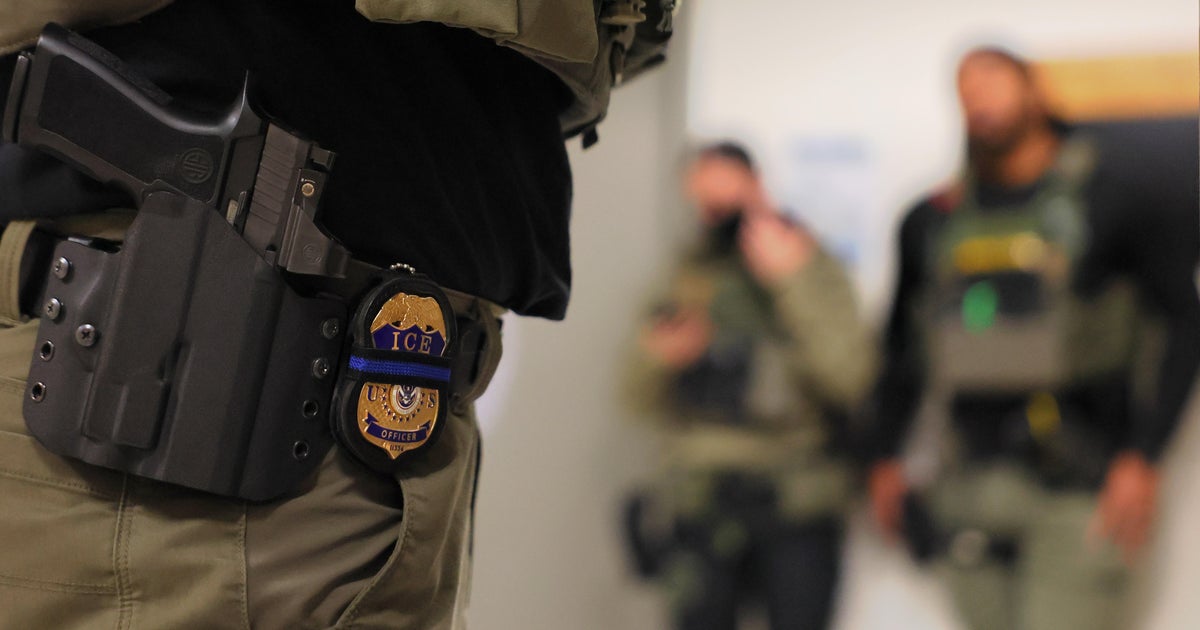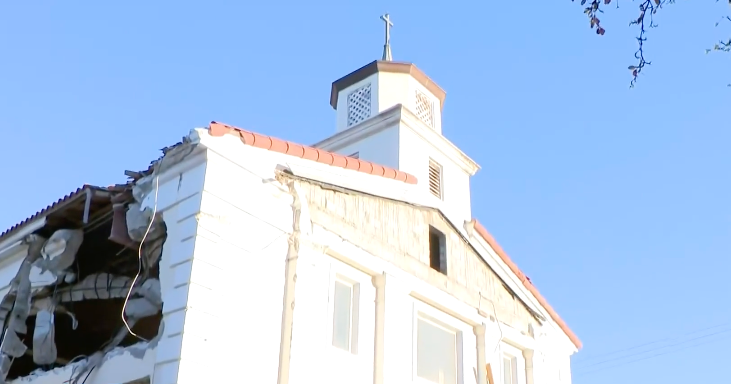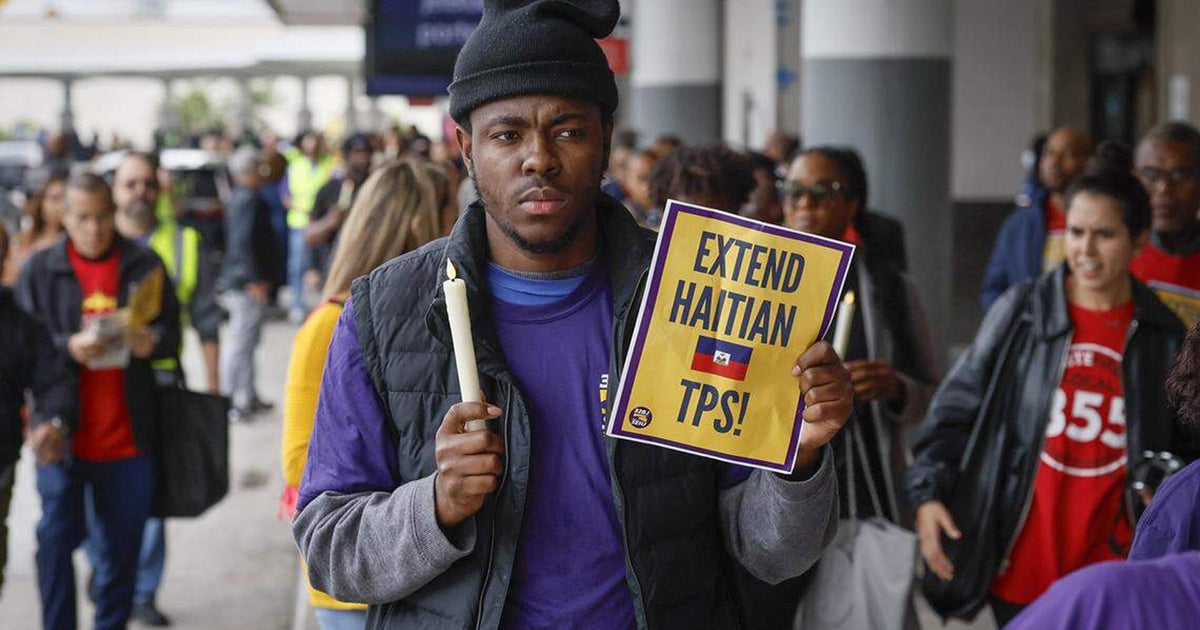Bulletproof vests, AI-assisted translation software and license plate readers are on a wish list of items sheriffs are seeking through a $250 million state grant program aimed at bolstering immigration enforcement.
The types of equipment, along with money for overtime, bonuses, vans and restraints, are included in a list of grant requests the State Board of Immigration Enforcement—made up of Gov. Ron DeSantis, Attorney General James Uthmeier, Agriculture Commissioner Wilton Simpson and State Chief Financial Officer Blaise Ingoglia — is slated to vote on Tuesday.
The applications from 56 agencies throughout the state total more than $14 million, ranging from Gulf County’s $10,882.50 request to $1.07 million sought by the Seminole County Sheriff’s Office.
Grants approved Tuesday will be the first tranche of money distributed as part of a program for local law enforcement agencies assisting federal immigration officials with President Donald Trump‘s mass deportation efforts. Lawmakers earmarked $250 million for the program and created the State Board of Immigration Enforcement during a special legislative session in February.
The proposals include requests for high-tech equipment such as portable fingerprint scanners and license-plate scanners.
Flagler County Sheriff Rick Staly’s $725,874.50 grant request includes $341,124 for AI-assisted software that enables body cameras “to provide real-time translation” in over 50 languages.
The AXON “voice-enabled AI companion” for the cameras will allow deputies to “communicate clearly with non-English speakers during high-stakes encounters,” according to the agency’s grant application.
“Immediate translation reduces misunderstandings that could escalate encounters by allowing officers to request identification, give instructions safely and accurately and verify personal and immigration documents. These services help build trust with diverse communities while maintaining lawful enforcement practices and enhance officer safety by allowing rapid, accurate information exchange in tense or dynamic situations,” the request said.
License-plate readers and data sharing
A number of law enforcement agencies are asking for money to cover license plate readers, or LPRs, to support the crackdown on illegal immigration.
“The LPR scan captures the date, time, and location of passing vehicles and the data is stored for up to one year,” a request from St. Johns County Sheriff Robert Hardwick said.
The sheriff “will share this data with federal agencies,” including U.S. Immigration and Customs Enforcement, the request said.
The data can help federal immigration officials searching for specific people and “can be used to track where their vehicle has been spotted,” according to the request.
“This allows law enforcement to develop a pattern of life to potentially identify home and work locations and plan enforcement actions,” the grant request said.
Bonuses, detention beds and transportation
The grant program also allows bonuses of up to $1,000 for each law enforcement officer who is trained as an immigration officer and who participated in at least one immigration task force operation overseen by federal authorities. Bonuses also are available to county jail officers who help with immigrant-detention efforts.
In addition, the grant program seeks to boost the number of beds available to temporarily house immigrants after they are detained. Jails can hold detainees for up to 48 hours before they are picked up by U.S. Immigration and Customs Enforcement, or ICE, officials or moved to another location.
The program allows sheriffs to apply for daily reimbursement of $75 or $100 per inmate, depending on what kind of federal immigrant-detention program they participate in. The state can’t be used to “supplant” federal funds.
Grant requests from local law enforcement agencies for detention-bed reimbursements total roughly $4.7 million, ranging from $2,000 sought by Bradford County to a $946,000 request from Miami-Dade County.
Grants can cover a myriad of other expenses related to immigration enforcement.
As an example, the Flagler jail has been tapped as a “temporary holding/drop point” for detainees in transit, according to Sheriff Staly’s grant submission. The sheriff is seeking $57,225 to purchase 34 “double-floor bunks” and 68 “sealed seam mattresses” to expand the jail’s immigrant-detention beds.
Sheriffs also are seeking roughly $2.7 million to cover costs related to transporting undocumented immigrants. In addition, 13 county sheriffs and Jacksonville also have applied for money to purchase vans to transport immigrant detainees.
Coordinated state and federal efforts
The grant requests come amid an escalation in immigration enforcement over the past few weeks, as more state and local law enforcement officers get certified to participate in deportation efforts alongside the Trump administration.
Pinellas County Sheriff Bob Gualtieri has been instrumental in developing a plan for sheriffs and other law enforcement agencies throughout the state to work with federal immigration authorities to coordinate arrests, detention and transportation of people who are in the country illegally to ICE facilities, where they can be held and processed for deportation.
The plan, which was rolled out over the past few weeks, divides the state into 18 regions and designates certain sheriffs within each zone with the responsibility of transporting immigrants being held at county jails to ICE detention centers in Florida.
Coordination between state, local and federal officials is critical to the immigration-enforcement effort, Gualtieri indicated.
“We have an enhanced collaboration with a structure and a framework that hasn’t existed before,” he said.
The plan also spells out in detail the process for law enforcement officers to handle people who are being arrested on civil immigration charges, meaning they have not committed crimes but are in the country without authorization. The plan involves coordination with federal immigration officials.
“Caution must be used because there are a number of situations where a person may appear to be an alien/foreign-born national unlawfully in the United States when neither is actually the situation,” the guidance, obtained through a public records request by The News Service of Florida, says.
Local law enforcement officers acting as “designated immigration officers” must “confer with an ICE officer before making an arrest and must bring any claims of citizenship, LPR (legal permanent resident), mistaken identity, or any other status that may affect the decision to arrest and detain, to the ICE officer’s attention,” according to the plan.
The state grants can help local law enforcement agencies as the number of people being booked into county jails intensifies with the recently adopted coordination plans, Gualtieri said.
“It’s been busy … The numbers are certainly there. They continue to increase,” he told the News Service. “And if you’re going to do this, then you need the tools to do it. … I think that this is a new norm and it’s going to be here for a while.”



